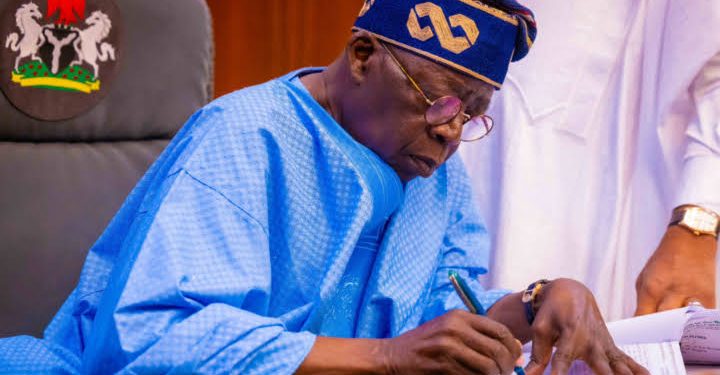Abuja, Nigeria – July 29, 2025 – Nigeria’s economy is currently navigating turbulent waters, primarily driven by the persistent depreciation of the Naira and the ongoing impact of government policies. While reforms initiated in 2023 aimed at revitalizing the economy, their outcomes have been mixed, leaving many Nigerians grappling with mounting economic pressures.
The Unrelenting Slide of the Naira
The Nigerian Naira has witnessed significant devaluation, particularly between June 2023 and early 2024, plummeting from approximately N450 to over N1,600 against the US dollar. Though it has seen periods of slight appreciation and stabilization in 2025, the overall trend points to a substantial loss of purchasing power. This devaluation has profound economic implications:
- Soaring Inflation: The most immediate and painful consequence of Naira depreciation is imported inflation. As the local currency weakens, the cost of imported goods – from essential food items and fuel to raw materials for industries – skyrockets. Nigeria’s inflation rate has remained stubbornly high, reaching over 30% in 2024 and projected to moderate to an average of 30% by year-end 2025, largely driven by the depreciated currency and the removal of fuel subsidies. This erodes the purchasing power of consumers, leading to a decline in demand and a worsening of living standards.
- Strain on Businesses: Small and Medium-sized Enterprises (SMEs), which form the backbone of the Nigerian economy, are particularly vulnerable. Many rely on imported raw materials or machinery, and the increased cost of sourcing foreign exchange has driven up their operational expenses, reduced profit margins, and, in some cases, led to closures. Even businesses that primarily source locally face higher costs due to the ripple effect of imported inflation on domestic prices.
- Increased Production Costs and Reduced Output: Manufacturers are finding it increasingly difficult to compete. The surge in the cost of inputs like fertilizers and crop protection products has stretched farmers to their limits, impacting agricultural output and contributing to food insecurity. The overall effect is a rise in production costs across various sectors, which can lead to lower output and a contraction in economic activity.
- External Competitiveness vs. Internal Stability: While a depreciated currency can, in theory, make exports cheaper and more competitive, Nigeria’s import-dependent nature means the benefits are often outweighed by the rising cost of imports. The challenge for policymakers is to strike a balance between maintaining a competitive exchange rate for exports and managing the inflationary pressures caused by a weakening Naira.
Government Policies: A Mixed Bag
The current administration has implemented several key economic reforms, including the complete elimination of fuel subsidies and the unification of exchange rates. These policies, while intended to improve fiscal health and attract investment, have had immediate and significant impacts: - Fuel Subsidy Removal: This bold move, while necessary for fiscal sustainability, instantly tripled domestic gasoline prices. The ripple effects have been felt across all sectors, from transportation to agriculture, further exacerbating inflationary pressures.
- Exchange Rate Unification: The goal of aligning informal and formal exchange rates was to eliminate the parallel market premium and improve transparency. However, its implementation has contributed to the dramatic depreciation of the Naira, as the official rate adjusted to market realities. While this aims to attract foreign investment by offering a more market-reflective rate, it has simultaneously made imports more expensive.
- Monetary Policy Tightening: The Central Bank of Nigeria (CBN) has responded to the high inflation by tightening monetary policy, including raising interest rates. This aims to curb inflation by reducing the money supply and discouraging borrowing. However, a sustained high-interest rate environment can also stifle investment and economic growth.
- Fiscal Measures: The government is focused on increasing revenues and strengthening macroeconomic fundamentals. Improved fiscal measures, such as tax reforms, are crucial for long-term stability and for creating the fiscal space needed for essential investments. The narrowing of the fiscal deficit from 6.4% of GDP in early 2023 to 4.4% in early 2024 indicates some positive movement in this area.
- Structural Reforms: Beyond immediate macroeconomic adjustments, the government acknowledges the need for deeper structural reforms. These include reducing trade barriers, improving access to reliable power supply, enhancing the business environment, and investing in infrastructure. The recent rebasement of Nigeria’s GDP, while showing a more diversified economy, also highlights the underperformance of the industrial sector, underscoring the need for re-industrialization to build export capacity and reduce import dependence.
The Path Forward
Nigeria’s economic outlook for 2025 is delicately poised. While projections suggest a potential GDP growth of 3-4% and a moderation of inflation, this hinges on sustained monetary tightening, relative exchange rate stability, and improved food output. The government’s challenge lies in continuing its reform agenda while mitigating the short-term hardships faced by its citizens.
Key considerations for the future include: - Sustained Fiscal Discipline: Continued efforts to boost non-oil revenues and manage public spending are crucial to reduce reliance on borrowing and improve fiscal sustainability.
- Targeted Social Safety Nets: To cushion the impact of reforms on vulnerable populations, effective and well-targeted social welfare programs are essential.
- Diversification and Productivity Growth: Long-term economic stability and growth will depend on diversifying the economy away from oil, promoting local production, and fostering an environment conducive to business growth and job creation.
- Attracting and Retaining Foreign Investment: Consistent and transparent policies, along with a stable macroeconomic environment, are vital to attract the foreign direct investment needed for infrastructure development and industrial expansion.
The Naira’s journey and the efficacy of government policies will continue to shape the daily realities of Nigerians. A careful balance between necessary reforms and their social impact will be paramount in steering the nation towards sustainable economic recovery.


